
Supercars of the 80s – Ferrari Testarossa
Step back into the 80s with the iconic Ferrari Testarossa, the symbol of style and speed that defined a decade
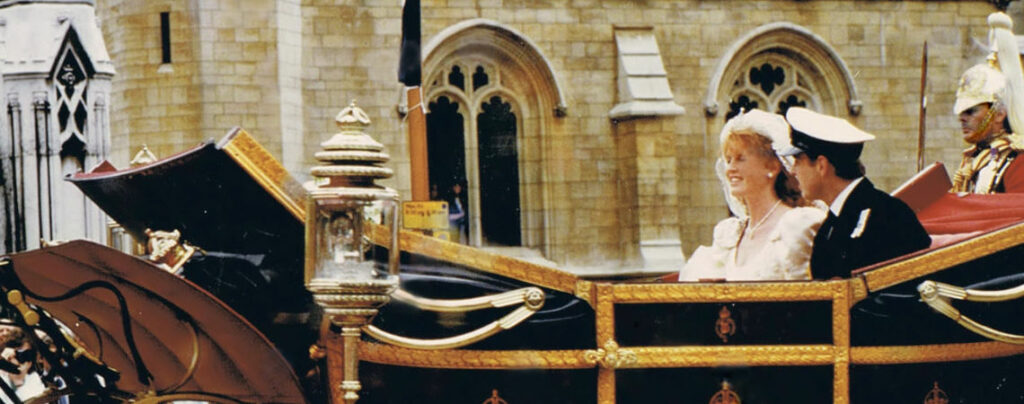
7th: The Society of Motor Manufacturers and Traders announces that a record of more than 1.8 million new cars were sold in Britain during 1985, beating the previous record set in 1983. The Ford Escort was Britain’s most popular new car, and all of the 10 top selling new cars were produced by Ford, Vauxhall or Austin Rover.
9th: Michael Heseltine resigns as Defence Secretary over the Westland affair.
Embed from Getty ImagesAfter three successive monthly falls in unemployment, the jobless count for December 1985 increased by nearly 15,000 to 3,181,300.
12th: Game show Catchphrase begins on ITV hosted by Roy Walker along with the computer generated character Mr. Chips. It concludes in 2002 but revived in 2013.
14th: The Salafi jihadist group al-Muhajiroun begins to operate in the U.K.
20th: The United Kingdom and France announce plans to construct the Channel Tunnel, which they hope to open by the early 1990s.
24th: Leon Brittan resigns as Trade and Industry Secretary over the Westland affair.
31st: Unemployment for this month has increased to 3,204,900 – a postwar high which accounts for 14.4% of the workforce.
6th: The government scraps plans to sell Austin Rover to Ford.
12th: The Franco-British Channel Fixed Link Treaty is signed at Canterbury as the Channel Tunnel plans move forward.
15th: In the Wapping dispute, fifty-eight people are arrested by police at a demonstration.
17th: The UK signs the Single European Act.
4th: The national tabloid newspaper Today launches from Wapping. It pioneers the use of computer photo typesetting and full-colour offset printing at a time when British national newspapers are still using Linotype machines and letterpress.
Embed from Getty Images5th: the High Court disqualifies and fines 81 Labour councillors for failing to set a rate.
13th: The Sun newspaper alleges that comedian Freddie Starr ate a live hamster.
18th: Inheritance tax replaces Capital Transfer Tax.
19th: Buckingham Palace announces the engagement of Prince Andrew to Sarah Ferguson; they will be married later this year.
Embed from Getty Images23rd: Chelsea F.C. are the first winners of the Football League’s new Full Members Cup, beating Manchester City 5-4 in the final at Wembley, although Manchester City clawed the deficit to a single goal in the last five minutes after being 5-1 down.
29th: The first high-speed catamaran ferry is introduced into service in the British Isles, HSC Our Lady Patricia on Sealink British Ferries’ Portsmouth–Ryde passage.
31st: The Greater London Council is abolished, as are the metropolitan county councils of West Midlands, Greater Manchester, Merseyside, Tyne and Wear, West Yorkshire and South Yorkshire.
A fire causes extensive damage at Hampton Court Palace in Surrey.
The Haig Pit, Whitehaven, Cumbria closes.
1st: The Prince and Princess of Wales open the extension of London Underground’s Piccadilly line to Heathrow Terminal 4. Trains do not stop at the station until 12 April.
7th: Clive Sinclair sells rights to ZX Spectrum and other inventions to Amstrad.
15th: The government’s Shops Bill 1986, which would have liberalised Sunday shopping, is defeated in the House of Commons on its second reading: the Thatcher government’s only defeat in the Commons.
17th: Journalist John McCarthy is kidnapped in Beirut, where three other hostages are found dead. The Revolutionary Cells (RZ) claims responsibility as revenge for the recent American bombing of Libya.
A treaty is signed, ending the supposed Three Hundred and Thirty Five Years’ War between the Netherlands and the Isles of Scilly.
20th: Oxford United F.C., who joined the Football League only in 1962 and are in the First Division for the first time, win the Football League Cup with a 3–0 win over Queens Park Rangers at Wembley.
28th: The first phase of the MetroCentre, Europe’s largest indoor shopping centre, in Gateshead, is opened. The remainder of the centre is set to open this autumn.
29th: The Duchess of Windsor is buried at Frogmore.
30th: Rioting erupts overnight in prisons across Britain. Dozens of prisoners escape, while prisoners at Stafford Prison set the prison canteen alight by smashing windows and dumping a burning mattress onto the roof. The worst disturbances come at Northeye Prison in Sussex, where a 70-strong mob of prisoners takes over the jail and sets fire to the canteen, hospital wing and sports hall.
5th: Liverpool win the Football League First Division title for a record 16th time after winning 1-0 at Chelsea. Kenny Dalglish, in his first season as the club’s player-manager, scores the goal which gives Liverpool the title.
8th: Labour makes large gains in local council elections, collecting 37% of the votes nationally compared to the Conservatives on 34% and the Alliance on 26%. These are the first national elections to be held since the recent abolition of the metropolitan councils.
10th: The first all-Merseyside FA Cup final ends in a 3–1 win for Liverpool over Everton, who become only the third team this century to win the double, having already secured the Football League First Division title.
21st: the Harrison Birtwistle opera The Mask of Orpheus premiers in London.
10th: Patrick Joseph Magee found guilty of the Brighton hotel bombing of 20 months ago and sentenced to life imprisonment.
12th: Derek Hatton, leader of Liverpool council, is expelled from the Labour Party for belonging to the entryist Militant group.
Embed from Getty ImagesAustin Rover is renamed the Rover Group four years after the name change from British Leyland.
23rd: Patrick Magee is jailed for life for the Brighton bombing of October 1984 as well as other IRA bombings.
24th: Ian Paisley’s Democratic Unionist Party stage protest at dissolution of Northern Ireland Assembly.
29th: Richard Branson beats the speed record for a transatlantic crossing by boat in Virgin Atlantic Challenger II but is denied the Blue Riband award.
Embed from Getty ImagesThe World Cup ends in Mexico with Argentina as winners and West Germany runners-up, but England’s Gary Lineker wins the Golden Boot, having finished as the competition’s leading scorer with six goals. Lineker, who has been at Everton for the last year and is the First Division’s top scorer, is reported to be on the verge of a transfer to FC Barcelona of Spain.
1st: Gary Lineker becomes the most expensive British footballer ever in a £2.75 million move from Everton to FC Barcelona.
Embed from Getty Images2nd: 24 hours after Gary Lineker’s transfer, Ian Rush sets a new transfer record for a British footballer when he agrees a £3.2 million move from Liverpool to Juventus of Italy, but is loaned back to Liverpool for a season and will not play his first game for Juventus until at least August 1987.
4th: A policeman is cleared of the manslaughter of five-year-old John Shorthouse, who was killed in an armed raid on a house in Birmingham in August last year.
12th: Rioting breaks out at Portadown in Northern Ireland between Protestants and Catholics.
17th: It is announced that unemployment rose to 3,220,400 in June. It has now exceeded 3 million for nearly five years.
21st: A report finds that 20% of British children are now born out of wedlock.
23rd: Prince Andrew, Duke of York, marries Sarah Ferguson at Westminster Abbey in London.
Embed from Getty Images24th: The Commonwealth Games are held in Edinburgh.
28th: Estate agent Suzy Lamplugh vanishes after a meeting in London.
30th: A MORI poll shows that Labour are now nine points ahead of the Conservatives with 41% of the vote, with Liberal/SDP Alliance support now at 25%.
8th: Rival gangs of Manchester United and West Ham United fans clash on a Sealink ferry bound for Amsterdam where the two clubs are playing pre-season friendlies. The UEFA ban on English clubs in European competitions is continuing for a second season, and there are now fears that English clubs may not even be able to play friendlies overseas.
13th: The Eurotunnel Group is formed to operate the Channel Tunnel.
15th: The latest MORI poll shows that the Conservatives have eliminated Labour’s nine-point lead and drawn level with them by gaining 37% in the latest opinion poll, in the space of just over two weeks.
16th: Figures released by the government reveal that a record of nearly 3,100,000 people claimed unemployment benefit last month, although the official total of unemployed people in Britain is still short of the record of nearly 3,300,000 which was set two years ago.
19th: The privatisation of the National Bus Company begins with the first sale of a bus operating subsidiary, Devon General, in a management buyout.
22nd: John Stalker, deputy chief constable of Greater Manchester police, is cleared of misconduct over allegations of associating with criminals.
25th: Economists warn that a global recession is imminent, barely five years after the previous recession.
29th: Britain’s oldest twins, May and Marjorie Chavasse, celebrate their 100th birthday.
The millionth council house in the United Kingdom is sold to its tenants in Scotland, seven years after the right to buy scheme was launched.
1st: GCSE examination courses replace both GCE ‘O’ Level and CSE courses for 14-year-olds.
6th: First episode of medical drama serial Casualty airs on BBC One. It will still be running on television more than thirty years later.
8th: Margaret Thatcher officially opens the first phase of the Nissan car factory at Sunderland, which has been in use for two months. It is the first car factory to be built in Europe by a Japanese car maker.
Embed from Getty Images14th: fears of another recession in Britain are eased by economists at Liverpool University predicting 3.1% economic growth next year.
18th: it is announced that unemployment rose to 3,280,106 in July.
19th: two people are killed and 100 injured at the Colwich rail crash.
24th: the floatation of the Trustee Savings Banks attracts a record of more than 4 million applications for shares.
7th: The first edition of The Independent national morning newspaper is published in London.
9th: “Babes in the Wood” murders: two girls, Nicola Fellows (aged nine) and Karen Hadaway (aged 10), are reported missing in Moulsecoomb, Brighton.
10th: “Babes in the Wood” murders: two bodies found in Wild Park, Brighton, are identified as those of the two girls reported missing yesterday and a murder investigation is launched; no-one is ever convicted.
12th: Elizabeth II and The Duke of Edinburgh visit the People’s Republic of China, the first ever visit to that country by a British monarch.
14th: The MetroCentre, a shopping complex built on the Tyneside Enterprise Zone, is opened. It is similar in concept to the Merry Hill Shopping Centre that is being developed near Dudley in the West Midlands. The MetroCentre is officially the largest shopping complex in Europe.
24th: the UK breaks off diplomatic relations with Syria over links to the Hindawi Affair.
26th: Bus deregulation begins in the United Kingdom, except Greater London and Northern Ireland.
Jeffrey Archer resigns as Deputy Leader of the Conservative Party over allegations concerning prostitutes.
27th: “Big Bang Day”: London Stock Exchange is computerised, and opens to foreign companies.
The Australian TV soap Neighbours is launched on BBC1, more than a year after debuting in its native country.
28th: Jeremy Bamber is found guilty of the murder of his parents, sister, and twin nephews and is sentenced to life imprisonment with a recommended minimum of 25 years, which is likely to keep him behind bars until at least 2011.
29th: Margaret Thatcher opens the completed M25 London Orbital Motorway, the first section of which opened in 1975. It covers a distance of 122 miles and features 31 junctions, although there are no service stations yet.
1st: First UNESCO World Heritage Sites in the U.K. designated: Giant’s Causeway and the Causeway Coast (Northern Ireland); Durham Castle and Cathedral; Ironbridge Gorge; Studley Royal Park (including the ruins of Fountains Abbey); Stonehenge, Avebury and Associated Sites; and Castles and Town Walls of King Edward in Gwynedd (Wales).
Launch of the second generation Vauxhall Carlton, largest model in the Vauxhall range. It will be sold as the Opel Omega on the continent, and all European versions of the car will be built in West Germany.
3rd: The Conservatives top a MORI poll for the first time this year, coming one point ahead of Labour with 40% of the vote. Liberal/SDP Alliance support has slumped to 18%.
6th: 45 people are killed in the 1986 British International Helicopters Chinook crash.
Alex Ferguson is appointed manager of Manchester United football club following the dismissal of Ron Atkinson after more than five years in charge. United won two FA Cups under the management of Atkinson but have not won the league title since 1967 and are now second from bottom in the Football League First Division.
Chancellor Nigel Lawson announces a £4.6 billion rise in public spending.
7th: Sir James Goldsmith’s £5 billion bid for the Goodyear Tire and Rubber Company is rejected.
13th: it is announced that unemployment fell by 96,000 in October.
18th: Ian Brady and Myra Hindley, who are both still behind bars some 20 years after their Moors Murders convictions, confess to the murders of two missing children. They admit their responsibility for the deaths of Pauline Reade, who vanished in July 1963 at the age of 16, and Keith Bennett, who was last seen in June 1964 at the age of 12. Police had suspected that the pair were among the Moors Murders victims soon after beginning their investigation on the arrest of Brady and Hindley in October 1965, but did not find the bodies or indeed any evidence to be able to press charges.
20th: police begin their search for the two newly identified Moors Murders victims.
21st: the government launches a £20 million campaign to warn members of the public about the dangers of AIDS.
1st: The government launches an inquiry into financial irregularities at Guinness.
3rd: 4 million people apply for shares in British Gas in anticipation of flotation next week.
4th: 20-year-old roofer Russell Bishop is charged with the “Babes in the Wood” murders in Brighton two months ago but will be acquitted.
8th: British Gas shares are floated on the Stock Exchange. The initial public offering of 135p per share values the company at £9 billion, the highest equity offering ever at this time.
17th: The world’s first heart, lung and liver transplant is carried out at Papworth Hospital in Cambridgeshire.
18th: It is announced that unemployment fell to a four-year low of less than 3,100,000 in November.
22nd: David Penhaligon, a leading Liberal Party MP, dies in a car crash near Truro in Cornwall at the age of 42.
25th: The highest audience of all time for a British television drama is attracted by the Christmas Day episode of EastEnders, the BBC 1 soap opera, in which Den Watts (Leslie Grantham) serves the divorce papers on his wife Angie (Anita Dobson) after discovering that she had feigned a terminal illness to try to stop him from leaving her in an episode aired in October this year. More than 30 million viewers tune in for the episode of the TV series which first went on air in February 1985.
A record 30 million viewers tune in to Eastenders where Dirty Den serves Divorce Papers on wife Angie.. The Christmas Number one was “Reet Petite” by Jackie Wilson
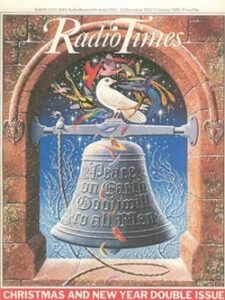
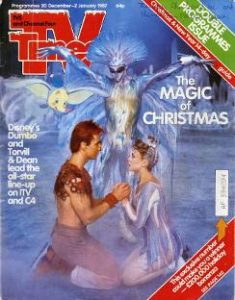
29th: Harold Macmillan, Earl of Stockton and former prime minister, dies at the age of 92 at his home, Birch Grove in East Sussex.

Step back into the 80s with the iconic Ferrari Testarossa, the symbol of style and speed that defined a decade
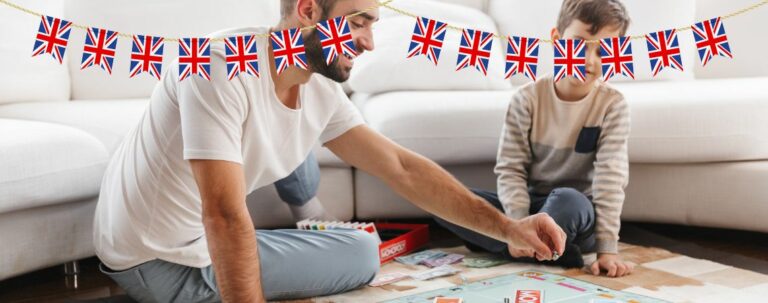
Take a trip down memory lane with these 20 iconic board games and toys that defined our 1980s childhood in the UK.

Immerse yourself in nostalgia with this collection of iconic 1980s UK TV adverts – a true blast from the past!

Tina Turner, the Queen of Rock ‘n’ Roll, whose life and career became a symbol of resilience and triumph, has left an enduring legacy
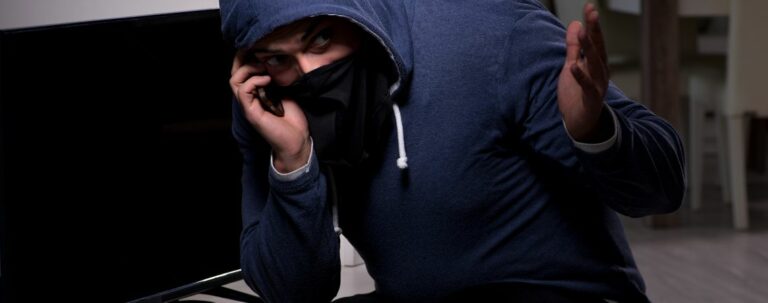
Uncover the Top 10 UK TV Villains of the 1980s: A journey through the most notorious and memorable antagonists of the decade
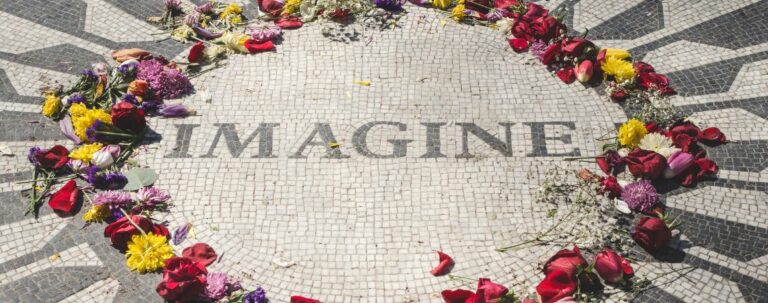
1980 saw the first CND rallies, the Alton Towers theme park opening and the murder of John Lennon in New York. The Moscow Olympics was the sport highlight.
No Events